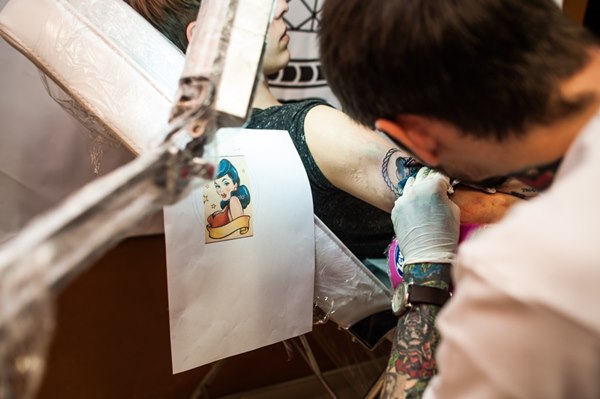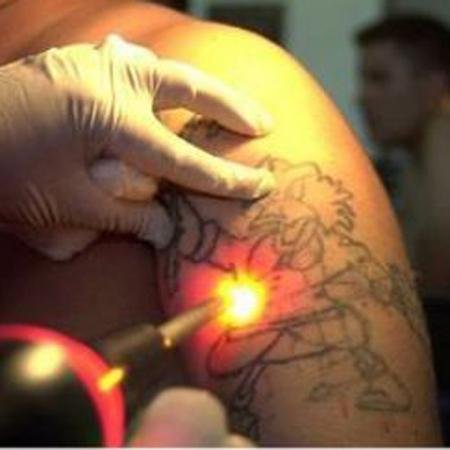- Москва, ул.Лётчика Грицевца 14а,
м. «Пыхтино» - Ежедневно, с 1200 до 2000
- +7 (915) 000-77-99 - (Телефон салона) +7 (915) 000−77−99 - (WhatsApp)+7 (915) 000−77−99 - (Viber)
- domtattoo@yandex.ru
The Tattoo Relationship
Все о татуировках
- Стили татуировки
- Белая татуировка
- Биомеханика (Biomechanics) и Органика
- Блэкворк ( Blackwork)
- Дотворк (Dotwork)
- Готика «Gothic»
- Кельтские
- Клокворк
- Нью Скул ( New School)
- Олд Скул ( Old School)
- Ориентал (Oriental)
- Полинезия
- Реализм
- Стимпанк
- Сюрреализм (Сверхреализм)
- Трайбл (Tribal)
- Треш полька
- Черно-серая "Black&grey"
- Чикано (Chicano)
- Этнический стиль тату (Ethnic)
- Японские тату
- Тотемные тату Тлинкитов
- Татуировки- надписи
- Временная татуировка.
- Хоррор
- Парные тату
- Крестиком
- Кружева
- Ультрафиолетовая татуировка
- Татуировки на частях тела
- Надписи для тату с переводом
- Надписи с переводом с немецкого на русский язык
- Надписи, афоризмы, цитаты на португальском и бразильском языке с переводом на русский
- Надписи на испанском с переводом
- Перевод фраз и гимнов (стихов) с хинди на русский
- Фразы, надписи и афоризмы на арабском языке с переводом
- Надписи для мужчин
- Надписи для мужчин с переводом
- Благородный муж
- Друзья и дружба - мысли великих.
- Труды, достижения и ошибки - надписи для тату
- Враги и недруги, война и кровь в надписях для мужчин
- Надписи о Смелости и Силе для мужских тату с переводом
- 120 надписей для Мужчин о Смелости, Силе и Движении Вперед
- Тату надписи для Мужчин-воинов и защитников Отечества на тему Смелости, Чести, Мужества, Долга и Действия
- Надписи для девушек
- Надписи на тему: Любви, Семьи и Верности с переводом на Английский
- Надписи с переводом о семье на разные азыки мира.
- Вопросы о татуировках
- Астрология и астральная геометрия
- Значение тату
- Уход за татуировкой
- Для СМИ и видео проектов
- Татуировка на шрамах
- Иглы и краски для татуировок
- Зодиакальные татуировки...
- Стили, виды татуировки. Сведение тату.
- English language
- Все о Сак Янт - Тайской Шаманской Татуировки
- Священные татуировки - ИЗ ПРОШЛОГО
- МАГИЧЕСКИЕ ЧЕРНИЛА: ЗАКЛИНАНИЯ И СИГИЛЫ
- ИГЛОЙ НА КОЖЕ
- ЛУК СИТ
- КХРУ САК
- ВИЧА
- ТЕКСТЫ И ЧИСЛА, ТЕЛЕСНЫЙ ЩИТ
- ЯНТРЫ ЧОК ЛАП ПРИНОСЯТ УДАЧУ И ПРОЦВЕТАНИЕ.
- ТРАНС
- ТРАДИЦИИ САК ЯНТ В ТАИЛАНДЕ
- ЗАКЛИНАНИЯ И ПИСЬМЕНА
- Обучение мастеров-татуировки в Тайланде (ТРАНСФОРМАЦИЯ И ДИСЦИПЛИНА)
- Сигилизм
Информация
- Портфолио
- Все о пирсинге
- Виды и стили
- Подготовка и процедура пирсинга
- Когда пирсинг уже сделан
- Бод Мод
- Украшение для пирсинга
- Инструмент для пирсинга
- Словарь терминов
- Cтоимость пирсинга
- Магическое, символическое значение пирсинга
- Вопросы и ответы про пирсинг
- Удаление татуировок
- Все о татуаже
- Новости
- Ответы на часто задаваемые вопросы о тату.
- Работы тату художника Yann Travaille
- Съемки MTV
- Проба пера
- Съемки Дискавери в судии ...
- Энциклопедия пирсинга
- 7 Московская Международная Тату Конвенция
- «Звёздный» гость салона «Дом Элит Тату» - известный продюсер Андрей Клюкин
- Ушел из жизни тату мастер Илья Смирнов
- Мы примим участие в Питерской тату конвенции 2015 года
- У нас делают татуировки модели Creepy Sweets
- Оригинальный майки и футболки с аэрографией за 4.000 рублей
- Мы получили независимую премию "Лучший Тату Салон 2015 года" по версии портала Татуировка.Рф
- Мы участники и победители тату конвенции в Москве
- Мы организаторы "Ночи Татуировщика 2015 в Москве"
- Rock heroes: Miss Тату Хабаровск
- Немецкий политик сядет в тюрьму за то что сделал нацистскую татуировку
- Международная Московская Тату Конвенция 2016
- Санкт-Петербургский Тату-Фестиваль
- 2 Международный фестиваль татуировки Сочи 2016
- Самый старый татуированный человек на нашей планете.
- 9-я Международная Московская Тату Конвенция 2017
- Тату мастер с 1.4 миллионом подписчиков маскирует растяжки
- Miss Tattoo Australia Дженн Десмонд - водитель грузовика
- Тату разрешены
- Зейн Малик сделал татуировку с глазами Джиджи Хадид на груди
- Тату как запрет на реанимацию
- В честь ЛДПР прошла тату-вечеринка
- Тату салон в Самаре
- Аренда места в тату салоне Москва. Как правильно и главное где арендава
- Обучение и все о нем
Positive social responses from friends and other members of the novice
tattooee's reference group also help decrease feelings of social risk, As
described earlier. getting tattooed is a highly social experience for most
 As
a type of marginal service interaction the purchase of a tattoo entails
conSiderable risk. Lack of familiarity with the purchase setting. anticipation
of pain. uncertainty about social consequences. unanticipated expense. and
other unknown factors lead the client to experience a high degree of risk.
As
a type of marginal service interaction the purchase of a tattoo entails
conSiderable risk. Lack of familiarity with the purchase setting. anticipation
of pain. uncertainty about social consequences. unanticipated expense. and
other unknown factors lead the client to experience a high degree of risk.
The tattoo consumer uses a variety of strategies to help reduce his or her experience of risk in the tattoo encounter. In particular. the tattooee uses information provided by characteristics of the setting and the interaction within it to ease feelings of anxiety. The cleanliness and order of the studio, the quality and variety of the flash, the appearance and demeanor of fellow customers, and photos of past work are important sources of information. The customer's interaction with the tattooist is of particular importance, since this is the primary source of the information he or she uses to calculate trust.
The literature on patient satisfaction with medical service clearly shows
that the client's evaluation of the service is, to a major extent, shaped by
his or her interactional experience with and relationship to the service
deliverer. The tattooee's experience of risk in the tattoo shop and
It is uncommon for tattooees to express dissatisfaction with being tattooed
per se. Those that do tend to focus on the inferior craftsmanship of the
service they receive. Concern with inferior quality is most commonly exhibited
by more heavily tattooed people who have sufficient experience to evaluate the
technical merits of their collection
I want to get this (tattoo) altered more to my liking. I prefer that to getting it taken off. At first I was totally against it, but now it doesn't really bother me. To tell the truth, if I am going to have one, I want one that I really like and stick with that. I want this one redone because (the tattooist) that did it was absolutely hammered when he did it. I don't think it is centered right. The lines aren't right. You can see that some of it is more pointed where it should be rounded. It's not good enough. It isn't done by someone I would call an artist. His hands probably weren't that steady. I don't like the care and the workmanship that went into it. If I am going to be stuck with something, I want it to be something that I can be relatively proud of. I'm not proud of it now but I'm not resentful anymore.
I don't wish I didn't have any [tattoosl. Well. I do regret
this [he indicates a crudely rendered flying money design). It just seems out
of place with everything else…. I don't know why I got it.
As seen in the quotes above. regretful tattooees tend to feel
personally responsible for the unsatisfactory quality of the work they have
acquired. They blame themselves for choosing to patronize a particular studio
or tattooist prior to searching out information. They also attribute their
regret to having chosen the wrong body location or design. not communicating
their desires more effectively to the artist. or not conSCientiously following
the aftercare instructions provided by the tattooist. This attribution of
dissatisfaction to errors of consumer choice encountered in tattoo recipients
is a feature
Due to the relative permanence of tattooing. there are only a
limited number of options available to the dissatisfied tattoo consumer. If he
or she is disappointed with the technical qUality of the work. the tattooee may
return to the artist and request to have the piece relined or recolored. Most
reputable commercial tattooists
Individuals who regret having chosen to get a tattoo have three
major options. Most simply. they can conceal the offending tattoo with clothing

The regretful tattooee, having made a purchase decision that is practically irreversible, experiences a high level of cognitive dissonance. If the more extreme options presented above are not defined as Viable, the individual must find ways of readjusting his or her perceptions of the tattoo in order to regain some degree of psychological comfort. Typically, regretful tattooees reestablish consonance either by simply resigning themselves to the unsatisfactory tattoo (like one comes to accept an overlarge nose or a receded hairline), by seeking information that helps to disconfirm the negative evaluation, or by adjusting one's definition of the tattoo so as to see it as haVing positive attributes. The tattooee may seek out other tattooed people who can provide information that will support a definition of the tattoo as being of reasonable, if not outstanding, quality. The tattoo work carried by others provides a basis for direct comparison of technique and design. Since much commercial tattooing is of mediocre quality at best. it is likely that the dissatisfied tattooee will have little difficulty finding work that is inferior to his or her own. Alternatively, the regretful tattoo reCipient may readjust his or her perception of the meaning of the disvalued tattoo. While the work may not be entirely satisfactory technically or creatively, it can be seen as haVing other positive attributes. For example, when asked why she did not get a coverup over a crudely rendered «homemade» tattoo, one interviewee replied:
.jpg)





